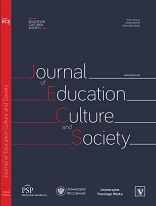Tolerance of uncertainty and ambiguity of the situation and anxiety as a state and as a feature
Tolerance of uncertainty and ambiguity of the situation and anxiety as a state and as a feature
Author(s): Sylwia BokuniewiczSubject(s): Psychology, Individual Psychology, Personality Psychology
Published by: Fundacja Pro Scientia Publica
Keywords: Tolerance of uncertainty;toleracne of ambiguity
Summary/Abstract: Aim. The aim of the undertaken research is to explain to what extent the tolerance of uncertainty and ambiguity of the situation is associated with anxiety as a state and with anxiety as a trait. Methods. The survey was conducted in electronic form with the aid of a form created on the Profitest.pl platform. The Uncertainty Tolerance Scale (own translation), COPE, STAI and Ambiguity tolerance scale were used. The examined variables were: coping with stress, feeling of anxiety as a state and anxiety as a trait (explained variables); uncertainty tolerance and ambiguity tolerance (explanatory variables). Results and conclusion. The research shows that people who feel anxious in uncertainty situations can absorb it and start using it as a trait. It was also noted that the greater the tolerance of uncertainty they have to reply to, the worse they cope in critical ambiguity situations. It has also been found that in order to overcome discomfort in difficult situations, people use equal coping strategies. Greater ambiguity tolerance allows participants to experience less stress. On the other hand, the lower the tolerance, the more often they reach for emotional and instrumental support and focus on emotions. Originality. Understanding the mediating processes related to the studied phenomenon may be of fundamental importance in the development of support systems promoting the improvement of mental functioning of people who have problems with quick adaptation to changes and in the creation of appropriate prevention programs aimed at helping these people.
Journal: The Journal of Education, Culture, and Society
- Issue Year: 11/2020
- Issue No: 2
- Page Range: 224-236
- Page Count: 13
- Language: English

